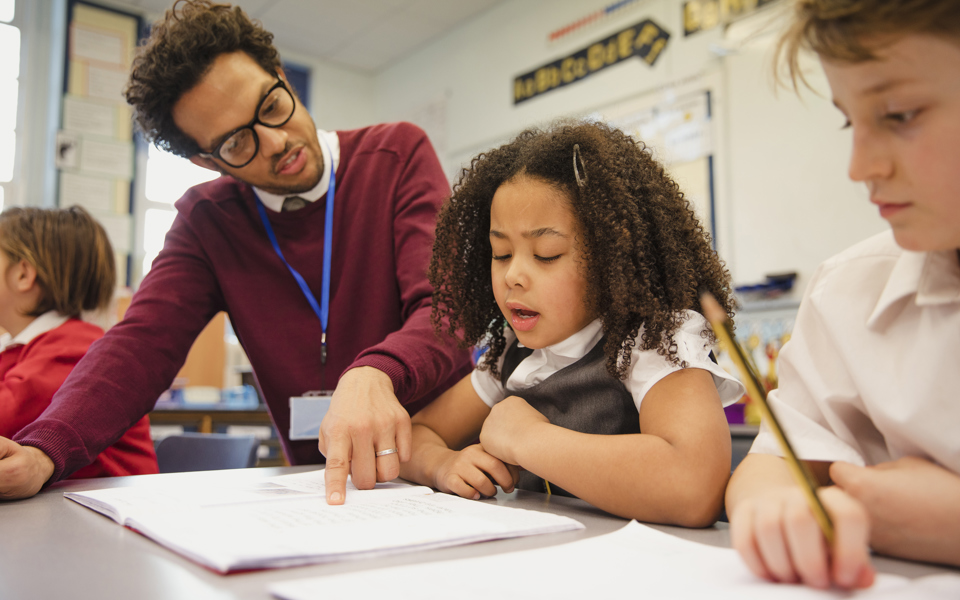Careers education in primary schools shows early promise
A new primary school careers pilot (Start Small; Dream Big) to help children learn about jobs, is boosting their knowledge and confidence about what their future could look like.
16 Jul 2024

-
New primary school pilot to help children learn about jobs has positive impact on pupils, parents, teachers and employers – employers delivered 278 encounters, showcasing jobs, attended by over 24,000 pupils.
-
Pupil knowledge of jobs rose, influence of stereotypes fell and parents noticed a difference – 33% of parents now having more job conversations with their children.
-
Employers value working with primary pupils – 92% want to do more.
-
Primary school careers provision and leadership commitment improved – 77% now embedding careers related learning in their school.
A new primary school careers pilot to help children learn about jobs, is boosting their knowledge and confidence about what their future could look like, according to new research published today.
The findings are based on early insights from the first wave of 302 primary schools in the Start Small; Dream Big pilot by The Careers & Enterprise Company (CEC), the national body for careers education. Employers delivered 278 encounters, showcasing jobs and the workplace, attended by over 24,000 pupils.
In total, the programme will reach hundreds of thousands of pupils and thousands of primary schools in targeted disadvantaged communities across the country over the two and a half years of the pilot.
The research shows the pilot is raising aspirations and breaking down stereotypes about what jobs girls and boys believe they can do.
This comes as studies show children start to form ideas about their future as they start primary school. However, as early as the age of six, children can adopt limiting gender and other stereotypes. By age nine, they can start to abandon their biggest ambitions.
As a result of the pilot, girls showed increased in interest in law (up 34%), business and finance (up 36%) and construction and building (up 25%). At the same time, interest in careers such as caring for animals fell 17%.
For boys, there was a 26% boost to interest in business and finance, with digital up 10%. At the same time, interest in sport careers fell by 8%.
On average there was a 6% rise in primary pupils’ knowledge of different jobs beyond those of their parents.
Parents reported a difference. A third (33%) said they were now having more conversations with their child about the world of work and that their child’s understanding of the world of work had increased.
Sixty-four per cent of teachers said their pupils’ confidence about future jobs available to them had increased as a result of the pilot, with 65% saying pupils now felt less restricted by stereotypes in their future job aspirations.
Seventy-seven per cent of schools stated their senior leadership teams were now embedding career-related learning in their school (up from 40%). 55% said they now bring learning to life by showing how school subjects link to jobs (up from 14% prior to the pilot).
Employers who took part in the programme highlighted the importance of starting careers conversations with young people early. Nearly three quarters (73%) valued working with primary schools. 92% are strongly committed to continuing the work.
Angela Ali, Science and Careers Lead at Stanhope Primary School in South Shields said:
“The workplace visit was eye-opening for our children. They generally have no parent in their home who has a career or employment.
“So for them to see and meet people in a big office and to introduce a future which could enable them to work in a place like that was revelatory and so rewarding.
“Some children were wowed that English, communication, reading and Maths was a core element of business. It highlighted to us as a school, how links between subjects and careers is so important and that we need to make those links really obvious to them.”
Oli de Botton, CEO of The Careers & Enterprise Company said:
“When it comes to careers education, the earlier you start the better, and there are real signs of promise from our new primary pilot.
“Children have big ambitions for their future at a young age. That’s why they need to see and meet a wide range of people from the world of work – keeping horizons as broad as possible for as long as possible – breaking down barriers about what jobs are best suited for certain people.
“This is particularly important for those in disadvantaged communities, who have bundles of talent but not always the opportunities they need.
“Looking ahead, laying the foundations of careers-related learning in primary offers the opportunity to smooth the transition into secondary schools, setting them up for greater success.”
Russell Hobby, Chief Executive of Teach First, who are commissioned by CEC to deliver the teacher training side of the pilot, said:
“All children are born with great potential and have big dreams for their futures. But without the right support and equal opportunities, too often these go unfulfilled.
“We know that high-quality careers education at primary school can be truly transformative - opening young people’s eyes to different future possibilities and breaking down stubborn stereotypes which can hold them back. This is especially important for children from disadvantaged backgrounds, who often have fewer chances to access the same guidance and experiences compared to other children.
“We’re delighted to have played our role in this pilot and see the incredible difference it’s already making to young people, helping them take the right steps towards the bright futures they deserve.”
The Promise of Primary
Early insights on the impact of career-related learning in primary schools from Wave 1 of The Careers & Enterprise Company’s Start Small; Dream Big pilot.
Read the findings